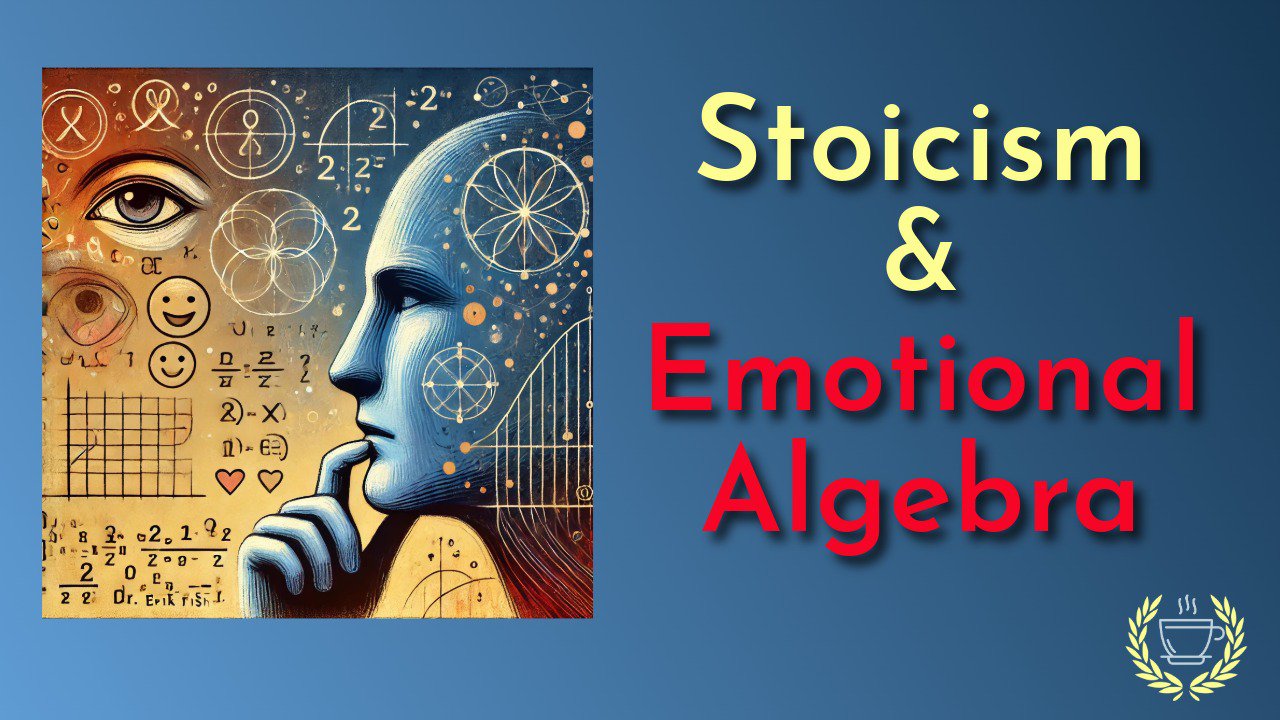Category: self-improvement
-

330 – Emotional Algebra: Interview with Dr. Erik Fisher
Explore the transformative power of Stoicism in enhancing mental health with insights from Dr. Erik Fisher. Discover how understanding and embracing emotions can lead to profound personal growth and resilience. Learn practical techniques on how to use Stoicism for better mental health and navigate life’s challenges with wisdom and grace.
-

325 – New Year Same You? The Stoic Guide to Effective Resolutions
”Life is long if you know how to use it.” —Seneca As the new year dawns, many of us set ambitious resolutions, yet often struggle to see them through. In this episode we draw on Stoic wisdom, exploring practical strategies for effective goal-setting—focusing on reflection, gratitude, and the process rather than just the outcome. Embrace…
-

320 – How to Actually Achieve Your Goals
“The important thing about a problem is not its solution, but the strength we gain in finding the solution.” —Seneca Struggling to achieve your goals often stems from feeling overwhelmed by the obstacles ahead. In this episode we delve into practical strategies for shifting your mindset, breaking tasks into manageable steps, and embracing personal growth…
-

317 – How to Be Unconquerable: Stoic Principles for Living Your Best Life (Part 2)
“Adopt new habits yourself: consolidate your principles by putting them into practice.” —Epictetus Discover the transformative power of Stoicism in Part 2 of How to Be Unconquerable. Dive deep into principles like self-acceptance, embracing change, and being open to criticism. Learn how these timeless teachings can help you live your most authentic life.
-

316 – How to Be Unconquerable: Stoic Principles for Living Your Best Life (Part 1)
“It is the power of the mind to be unconquerable.” —Seneca Do you feel like you’re not living up to your potential? Discover how Stoic principles can transform your mindset and empower you to take control of your life. Learn the first steps towards becoming unconquerable by embracing personal responsibility, focusing on what you can…
-

312 – Stoicism in Action: Interview with Shawn Sarazin
“The impediment to action advances action. What stands in the way becomes the way.” —Marcus Aurelius In this heartfelt episode of the Stoic Coffee Break, Erick Cloward sits down with Shawn Sarazin, a listener who shares his transformative journey through pain and acceptance. From battling chronic leg issues to making the life-altering decision to amputate,…
-

307 – Interview With Author and Human Behavior Expert Dr. John Demartini
Join Erick Cloward on this week’s Stoic Coffee Break as he delves into an inspiring conversation with Dr. John Martini, a relentless researcher and teacher who overcame significant childhood challenges to explore human potential. Discover how philosophy and the pursuit of knowledge can transform lives, all within the time it takes to enjoy your coffee.
-

305 – Q & A: Friendship, Religion, Purpose, and Arguments
In this week’s episode of the Stoic Coffee Break, Erick Cloward dives into listener questions on friendship, religion, and finding purpose. Reflecting on personal experiences and Stoic principles, he emphasizes the importance of making time for friendships, the compatibility of Stoicism with religious beliefs, and the evolving journey to discover one’s life purpose. Join Erick…
-

299 – Imposter Syndrome: Who do you Think You Are?
“Those who do not observe the movements of their own minds must of necessity be unhappy.” —Marcus Aurelius Feeling like a fraud despite your achievements? Discover how Stoic philosophy can help you combat imposter syndrome and embrace your true self. Learn to focus on what you can control, accept imperfections, and cultivate inner resilience for…
-

287 – Interview with Constatin Morun of Unleash Thyself Podcast
Dive into an enlightening conversation between Erick Cloward of the Stoic Coffee Break and Constantin Morun from Unleash Thyself Podcast. They explore the transformative power of self-discovery, the quest for purpose, and the journey to living a life aligned with one’s true self.